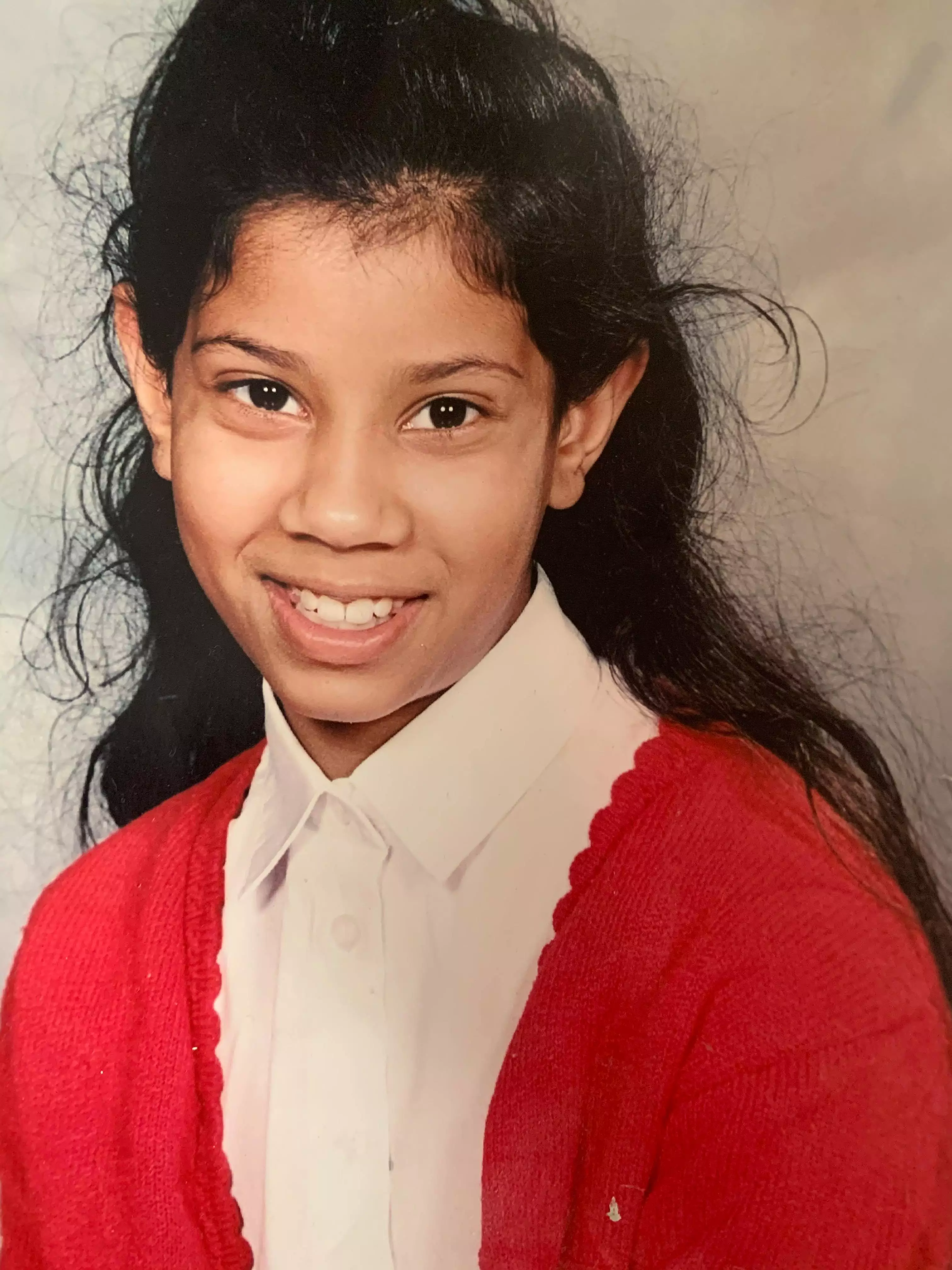
Words by Kavi Shah
Some of Priya Bangar's earliest memories of secondary school involve crouching down against the wall, holding her stomach and keeling over with pain from menstrual cramps.
"Every so often I'd be wheeled out of school on a stretcher by the ambulance crew after fainting," Priya, now 28, tells Tyla. "My classmates used to joke that I needed a 'fragile' sticker. Sometimes I couldn't even get out of bed to get to school."
Priya, a personal development coach from Birmingham, was experiencing symptoms of endometriosis - but she didn't know it at the time.

One in 10 women suffers from from the condition, where tissue similar to the lining of the womb starts to grow in other places, such as the ovaries and fallopian tubes, and every monthly cycle the tissue thickens and bleeds, causing pain, inflammation, and heavy flow. Nearly 62 per cent of 16-24-year olds are unaware of what endometriosis is, and on average a woman has to wait more than seven years for a diagnosis.
Priya's diagnosis took 12 years.
Nausea, fainting and pain in her stomach, back and lower hip were just the start for Priya. She was a regular in hospital and doctors put it down to IBS or appendicitis. "Eventually they referred me to a psychologist because they thought it was all in my head."
Advert
Soon her parents too believed she was faking her pain, and seeing as Priya's two elder sisters hadn't experienced anything like this, she even began questioning it herself.

Through university, Priya admits that she got better at hiding the debilitating pain. She tried acupuncture, trigger point therapy, reiki, homeopathy, and she even flew to Arizona to see a specialist in women's health - at a cost of about $8,000 (£5,800) - but little helped. The contraceptive pill provided relief, but when she came off it the pain returned ten times worse.
Aged 23, Priya began to experience a new constant leg pain: "Basically the intense ache you get after leg day at the gym, but all day, where coming up or down the stairs is a challenge". She approached her GP, who told her to "relax her muscles with a glass of wine".
In search of relief, Priya Googled endometriosis and while reading about the symptoms she had a lightbulb moment: "I thought, 'Oh my gosh this is what I have'."

She made an appointment with a gynaecologist, but still nothing came of it. "The doctor laughed in my face. She said because a lot of pain was in my legs, I couldn't possibly have endometriosis." Leg pain isn't associated directly often with endometriosis, but it is a commonly-reported symptom.
Priya decided it was time to take things into her own hands. She found a group on Facebook called Nancy's Nook Endometriosis Education, asked questions and discovered an endometriosis specialist who operated in her hometown.
She paid to see him privately, and he was the first one to take her seriously. He proposed a laparoscopy, where a thin tube is passed through a small cut in the stomach to see if there were any patches of endometriosis tissue.
It turned out Priya did have endometriosis. She underwent excision surgery - where a surgeon cuts out all the visible endometriotic tissue in the pelvis to provide relief from symptoms - in June 2019 and things improved; it is a treatment for this condition but there is no cure. "I felt like I'd finally got my life back."

But in December 2020 the symptoms came back with a vengeance. Endometriosis is a chronic condition so it's not unusual for symptoms to return.
"It's something I'm learning to live with" says Priya. She's currently waiting for results to see whether she needs to have surgery again, and is dealing with the pain through reiki, yoga and by following a plant-based diet. Reiki is said to promote relaxation and the body's natural healing process, while yoga similarly puts you in a calmer mindset, which can reduce how you experience discomfort and pain. Endometriosis is marked by inflammation caused by hormonal changes during menstrual periods; and so a plant-based diet can have an anti-inflammatory effect on the body, thereby reducing symptoms and pain.
Dr Samantha Wild, women's health clinical lead and primary care physician at Bupa Health Clinics, says: "If you notice prolonged problems such as stomach, lower back and leg pain that stops you from getting out of bed or heavy periods, speak to your doctor.
"Many women accept the pains and symptoms of endometriosis as normal, which is often why it takes so long for them to seek help and get diagnosed. Remember that endometriosis can't be diagnosed with a blood test or a scan; a doctor or gynaecologist must refer you to a surgeon for a laparoscopy."
Endometriosis can increase the risk of infertility and miscarriage and it has scared Priya. "I'm 28, I'm not married and I want to have kids. I used to stay up at night worrying that nobody would want to marry me because of this condition."
The condition hasn't just affected her physically and mentally, but financially too: she's spent about £30,000 so far on private appointments and treatments.
It has also impacted her work. "I had a corporate job but needed to take so much time off sick that I was threatened with disciplinary procedures. I found that female bosses were less supportive - they said they didn't experience anything like me." She's now self employed, which means she can take time off when she needs to.
Priya is keen to share her story to help others, and her advice for others is: "Painful periods aren't normal - go and get checked, and don't stop until you have answers."
Advert
March is Endometriosis Awareness Month. For help or support, visit endometriosis-uk.org